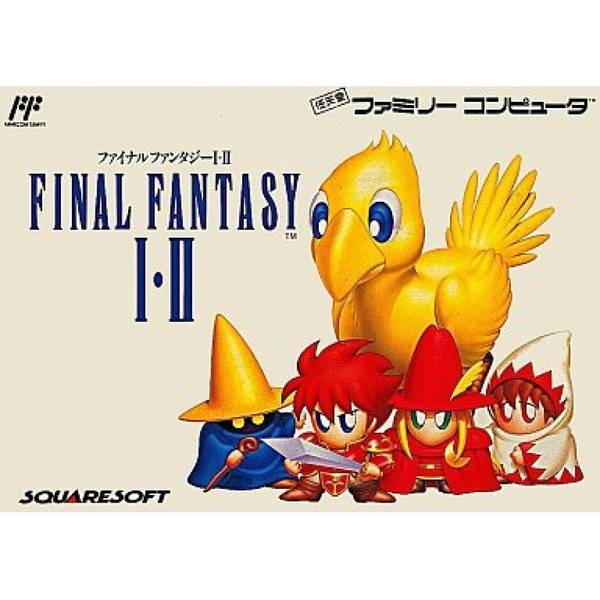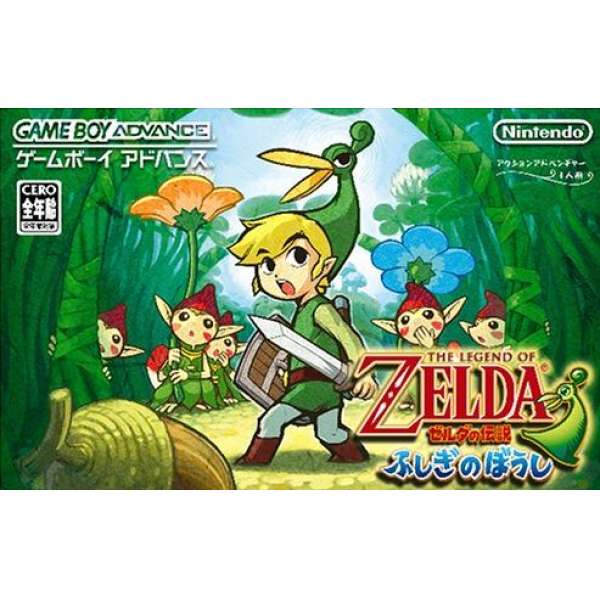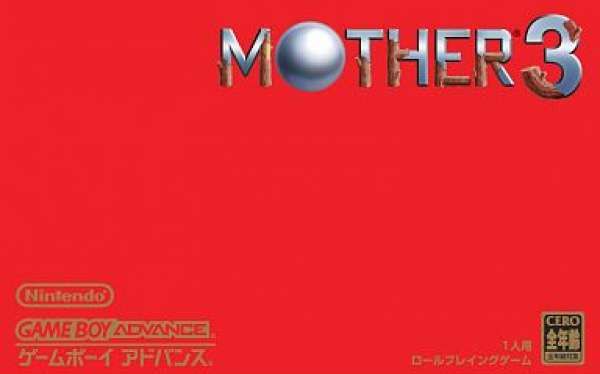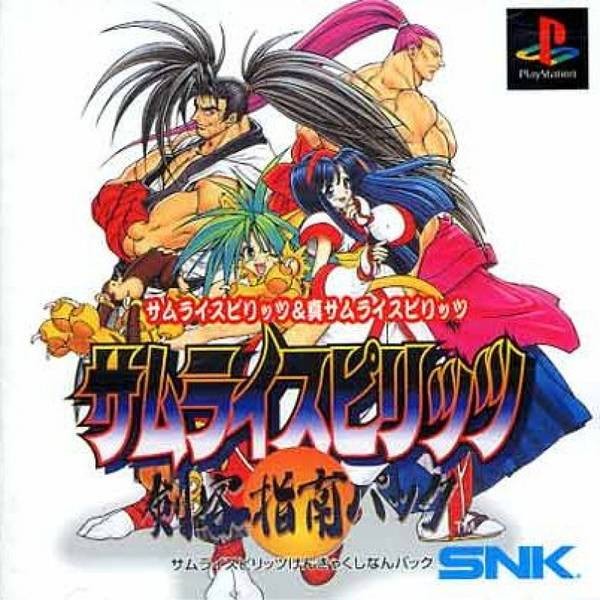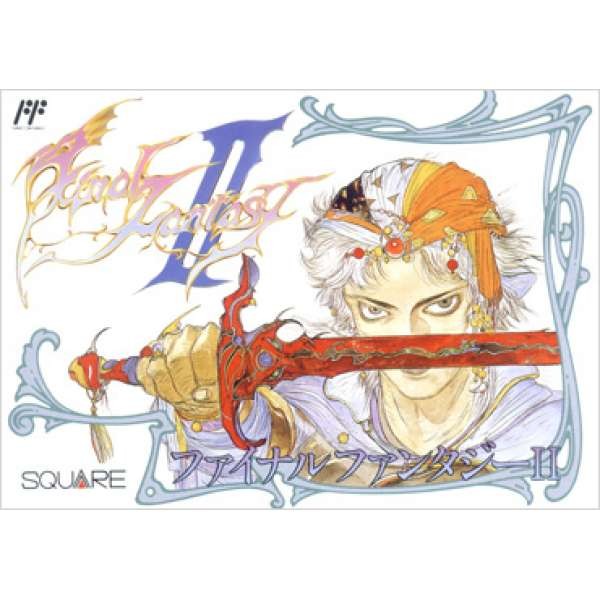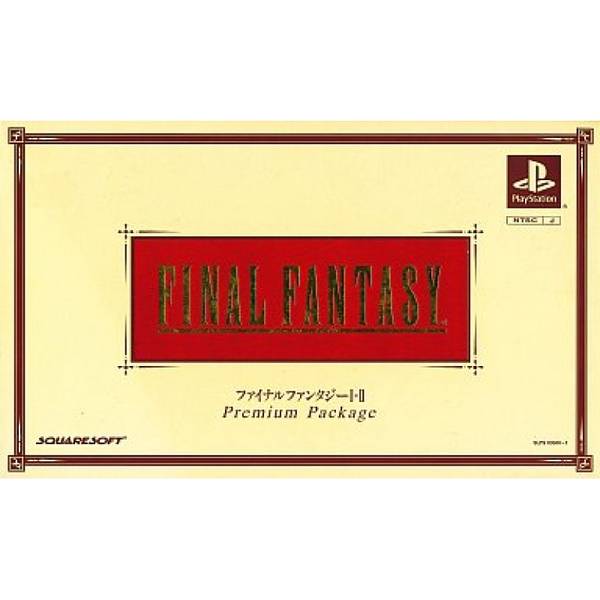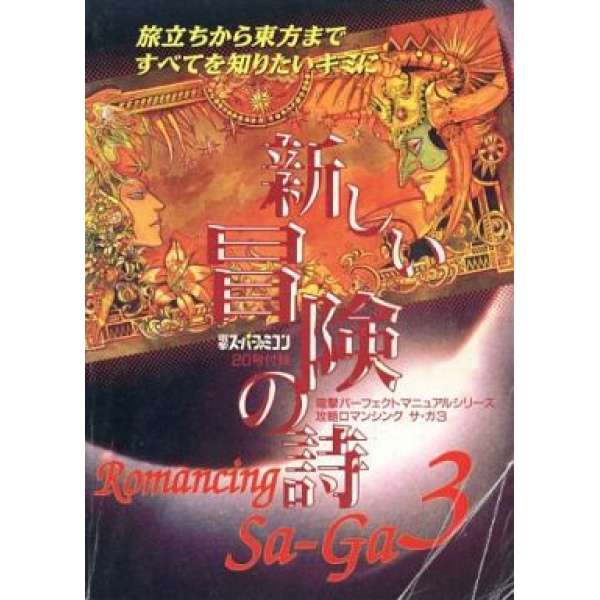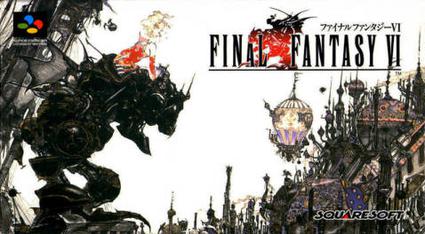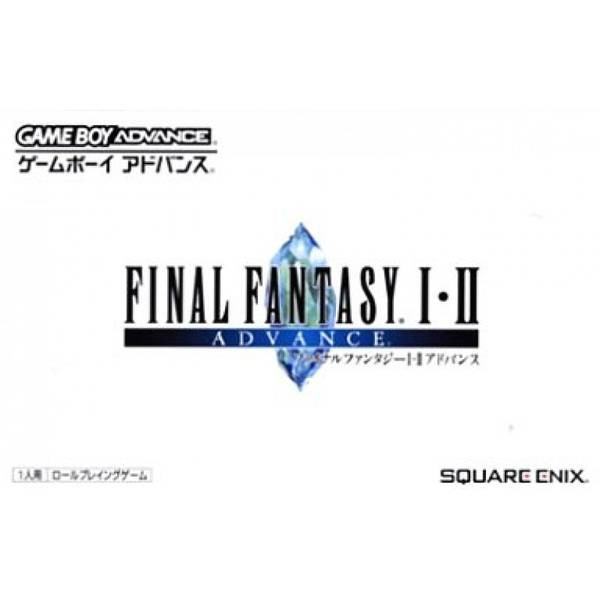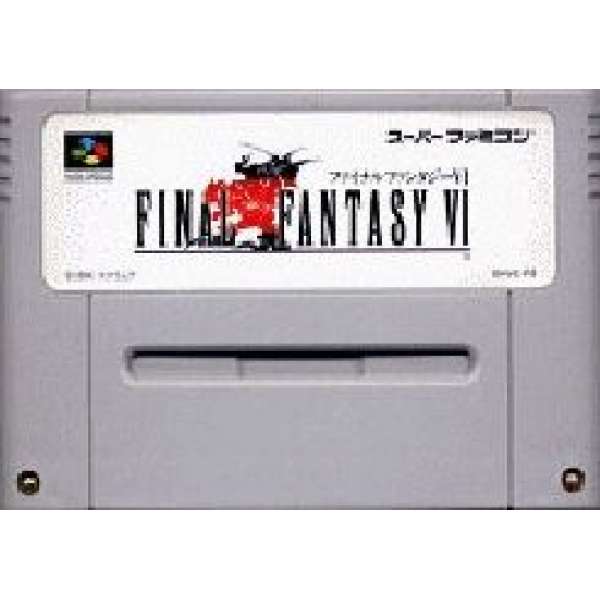太空戰士1-2合輯
《太空戰士2》(Final Fantasy II)是由史克威爾(Squaresoft)於1988年在任天堂紅白機(Famicom / NES)平台推出的角色扮演遊戲(RPG),是該系列的第二部作品,首次實現許多創新性的機制。儘管在當時的銷量表現一般,但它為後來的《太空戰士》遊戲奠定堅實的基礎,並對角色扮演遊戲的發展起到重要的推動作用。之後移植到WonderSwan Color、PS、GBA、PSP及手機。
在《Final Fantasy I·II Advance》中的版本則在全破後新增關卡「靈魂重生」(Soul of Rebirth),描述其他死亡配角的劇情。而玩家們擊敗敵人後,可以收藏他們的圖鑑,在Bestiary的資料庫中,可以看到他們的優缺點及可能隱藏的寶物。二代的敵人總數有169位,可挑戰是否能100%全部都收藏。
故事描述長期以來的和平即將結束,Plamamecia帝國的皇帝,從地下世界召喚出四隻怪獸,企圖征服整個世界。來自Fynn王國所組成的反抗軍決定阻止皇帝的野心,不幸的是Fynn王國的城堡很快就淪陷,於是反抗軍被逼迫撤退到Altair的城鎮內。四名主角的父母都被帝國軍所殺害,於是展開逃亡。少年們分別為胡立歐尼魯(Firion)與瑪麗雅(Maria)、凱(Guy)以及瑪麗亞的兄長雷歐夏洛特(Leon),全部躲在森林中避難,不幸被帝國軍發現後打敗。主角胡立歐尼魯醒來之後發現身處反抗軍總部的阿爾迪亞鎮(Altair)內,救他的是來自反抗軍的公主Hilda跟魔法大師Minwu。
沒多久離開房間後,就會發現瑪利雅以及凱,但是雷歐夏洛特則是失蹤中。在與Hilda公主持續交談後就會得到反抗軍的密碼:野薔薇(Wild Rose/のばら),準備起身往芙茵王國前進。到上方的芙蓉王國會發現,到處都是士兵,商店內都沒有人在販售商品,這時候來到右邊的酒館(Pub)內,發現有支持反抗軍的人,交談後使用野薔薇的密碼就能進入密道。找到一位重傷的士兵,交談後才發現他是深愛著Hilda公主的Kashuan王國王子史考特(Scott),並告知Borghen公爵已經背叛,除投向帝國軍的勢力,還成為敵方將領,史考特會在死前留下他的戒指,這時要準備告訴反抗軍此重要訊息……
在遊戲機制上相較於前作進行顯著的改進,尤其是戰鬥系統和角色成長系統。延續回合制戰鬥的玩法,但最顯著的創新是「能力成長系統」,這是《太空戰士2》最具特色的元素之一。與許多當時的RPG遊戲不同,角色並不依靠經驗值來提升等級。相反,角色的能力會根據他們在戰鬥中的行為來進行成長。例如,角色進行攻擊時,他的攻擊力就會提高;角色使用魔法時,魔法能力會增強。這種基於角色行為的成長系統是其的核心特色之一,並且此機制在後來的許多RPG中被模仿。這樣的設定可能在遊戲過程當中可以在很短的時間內快速升及或是很久都不會升級,這部分的設定引起玩家反彈,之後出的三代又恢復傳統的升級制度。
指令的操作選項有1.攜帶物品(Items) 2.魔法(Magic) 3.裝備(Equipment) 4.狀態(Status) 5.隊形排列(Formation) 6.關鍵字(Key term):在整個冒險中會持續學習到關鍵字,大部分都是用來延續劇情之用 7.遊戲功能設定(Config) 8.存檔(Save)。戰鬥時的選項則有1.攻擊(Attack) 2.魔法(Magic) 3.物品(Items) 4.逃跑(Flee)。
戰鬥依然是回合制的,指揮角色進行物理攻擊、使用魔法、物品或進行防禦。不同的角色有不同的技能和魔法,根據敵人的弱點和戰鬥情況來做出最佳選擇。魔法的系統也得到擴展,透過購買道具就能使用多種不同的魔法來攻擊、治療或防禦。此外,也加入更多的戰鬥元素,例如多樣化的敵人設計和各種複雜的關卡挑戰。遊戲中的地圖廣闊,包含城鎮、地下城、隱藏區域以及世界地圖,在這些不同的場景中探索、解謎並與敵人戰鬥。而可愛的路行鳥(Chocobo),也首次登場。
關卡設計注重探索與謎題解謎。世界地圖涵蓋多個區域,包括城鎮、迷宮、城堡和地下洞窟,每個地方都有其獨特的敵人和謎題。在探險過程中逐步解開謎題,並且戰勝敵人來推動劇情發展。並導入詞彙記憶的新功能,與NPC對話的時候可以透過詢問與記憶的特定詞來獲得更多資訊或解鎖新劇情。每個地下城和迷宮都充滿危險,敵人的設計也變得更加多樣化,根據敵人屬性和戰鬥模式調整自己的策略。在這些關卡中,有些地點可能隱藏著重要的物品或魔法,這些物品對角色的強化至關重要。許多迷宮需要謹慎探索,有時甚至需要解開謎題才能通過。
當年發售後,雖然未能達到像後來的系列作品那樣的巨大成功,但它在當時的市場中仍獲得的關注和好評。許多玩家和評論家對其創新的能力成長系統和劇情發展給予高度評價。故事情節比許多當時的RPG更具深度,角色的情感描寫和成長也讓人更加投入其中。然而,在商業上的表現並不如預期,部分原因是當時的玩家對升級設定的不滿和競爭激烈。然而,隨著該系列後續作品的發展,尤其是《太空戰士4》和《太空戰士6》的成功,回顧《太空戰士2》時,許多玩家認為它是該系列成長的關鍵一環。獨特性和創新玩法不僅影響深遠,還帶動整個RPG類型的發展。
Final Fantasy II, developed by Squaresoft (now Square Enix), was released in 1988 for the Famicom/NES as the second entry in the Final Fantasy series. This RPG introduced numerous innovative mechanics, many of which became foundational for the series moving forward. Although sales at the time were moderate, the game played a crucial role in shaping future Final Fantasy titles and contributed significantly to the evolution of role-playing games (RPGs). It was later ported to platforms such as the WonderSwan Color, PlayStation, Game Boy Advance (GBA), PSP, and mobile devices.
In the GBA version, Final Fantasy I & II: Dawn of Souls, a new dungeon called Soul of Rebirth was added after completing the game, offering a side story focusing on the deceased supporting characters. Additionally, players could collect enemy data in a Bestiary after defeating them, which revealed their strengths, weaknesses, and hidden treasures. There are 169 different enemies in Final Fantasy II, and players are challenged to collect them all.
The story unfolds as long-standing peace is shattered by the rise of the Palamecian Empire. The Emperor summons four monsters from the underworld, seeking to conquer the entire world. In response, a rebellion led by the Kingdom of Fynn forms to oppose him. Unfortunately, Fynn’s castle quickly falls to the Empire, forcing the rebels to retreat to the town of Altair. The four protagonists—Firion, Maria, Guy, and Leon (Maria’s older brother)—lose their parents to the Empire’s forces and flee into the forest. However, they are discovered and defeated by Imperial soldiers.
Firion awakens in Altair, the rebel headquarters, saved by Princess Hilda and Minwu, a powerful mage. Shortly after leaving the room, Firion reunites with Maria and Guy, but Leon remains missing. After speaking with Hilda, the party learns the password "Wild Rose", the symbol of the rebellion. With this information, they head to Fynn. Upon arriving, they find the town occupied by soldiers and deserted shops. In the local pub, they encounter a rebel sympathizer who lets them into a secret passage after hearing the password. Inside, they meet the gravely wounded Prince Scott of Kashuan, who reveals that Duke Borghen has betrayed the rebellion and sided with the Empire. Before dying, Scott entrusts the party with his ring, a vital piece of information for the rebels.
Gameplay and Mechanics
Final Fantasy II introduced significant gameplay improvements over its predecessor, especially regarding the battle and character progression systems. While the game retained a turn-based combat structure, its most notable innovation was the stat-growth system, which became one of the defining features of the game. Unlike most RPGs of the time, characters did not level up through experience points. Instead, their stats grew based on actions performed in battle. For example:
Attacking increased strength and weapon proficiency.
Using magic enhanced magical abilities.
Taking damage improved maximum HP.
This behavior-driven growth system became a unique hallmark of Final Fantasy II. However, it sparked mixed reactions from players, as the progression could feel inconsistent—sometimes resulting in rapid growth or long periods without improvement. Due to this feedback, Final Fantasy III returned to the traditional leveling system.
The game’s menu commands include:
Items – Manage inventory.
Magic – Use and equip spells.
Equipment – Change weapons and armor.
Status – View character stats.
Formation – Adjust party positioning.
Key Terms – A new mechanic allowing players to learn and use keywords to advance the story.
Config – Adjust game settings.
Save – Save the game.
During battles, the following options are available:
Attack – Physical strikes.
Magic – Cast spells.
Items – Use consumables.
Flee – Attempt to escape.
The magic system was expanded, allowing characters to purchase and learn a wide variety of spells for attack, healing, and defense.
Exploration and Combat
The game features a broader world map with diverse locations, including towns, dungeons, hidden areas, and overworld zones. Chocobos, the beloved series mascots, also made their debut in this installment.
The level design emphasizes exploration and puzzle-solving. The world map covers numerous regions, such as towns, fortresses, and caves, each with unique enemies and puzzles. As players progress, they gradually unlock new areas and advance the story through dialogue and item collection.
A key addition is the keyword memory system, allowing players to learn important terms during conversations. These terms can be used when speaking with NPCs to unlock additional dialogue or new quests.
Dungeons and labyrinths present considerable danger, featuring a greater variety of enemies and environmental traps. Some dungeons contain hidden items or spells critical for character progression. Players must carefully explore and solve puzzles to proceed.
Reception and Legacy
Although Final Fantasy II did not achieve the massive commercial success of later entries, it garnered significant attention and praise for its innovative mechanics and narrative depth. The character-driven plot, with its emotional arcs and focus on personal growth, stood out from other RPGs at the time, immersing players in the story.
Despite this, the game’s commercial performance fell short of expectations, partly due to player frustration with the stat-growth system and intense market competition. However, as the series progressed—especially with the success of Final Fantasy IV and Final Fantasy VI—many players came to appreciate Final Fantasy II as a pivotal step in the series' development.
Its unique mechanics and innovations not only influenced the Final Fantasy series but also left a lasting mark on the RPG genre, cementing Final Fantasy II as an essential, if sometimes overlooked, chapter in the franchise's history.
運費計算方式:
貨款滿1000元運費外加90元
貨款1000以下:買1件運費外加 60元,買2件運費外加 70元,
買3件運費外加 80元 ,買4件運費外加 90元
貨到付款外加30元手續費
外島及大陸地區運費另計
付款方式:
線上刷卡:本站採用Paypal線上刷卡
虛擬帳號匯款:屬於您專屬的虛擬帳戶,方便站長查帳使用,本站強力推薦
實體ATM匯款:請將匯款帳號記錄下來至各大銀行ATM提款機轉帳
超商條碼繳費:請列印本站提供的條碼至四大超商繳費
線上轉帳:透過玉山銀行線上ATM轉帳(此系統只支援IE瀏覽器)
貨到付款:本站採用黑貓宅急便貨到付款
其他注意事項:
如需購買線上點數卡請直接跟站長連絡,本站不提供點數卡的線上付款

